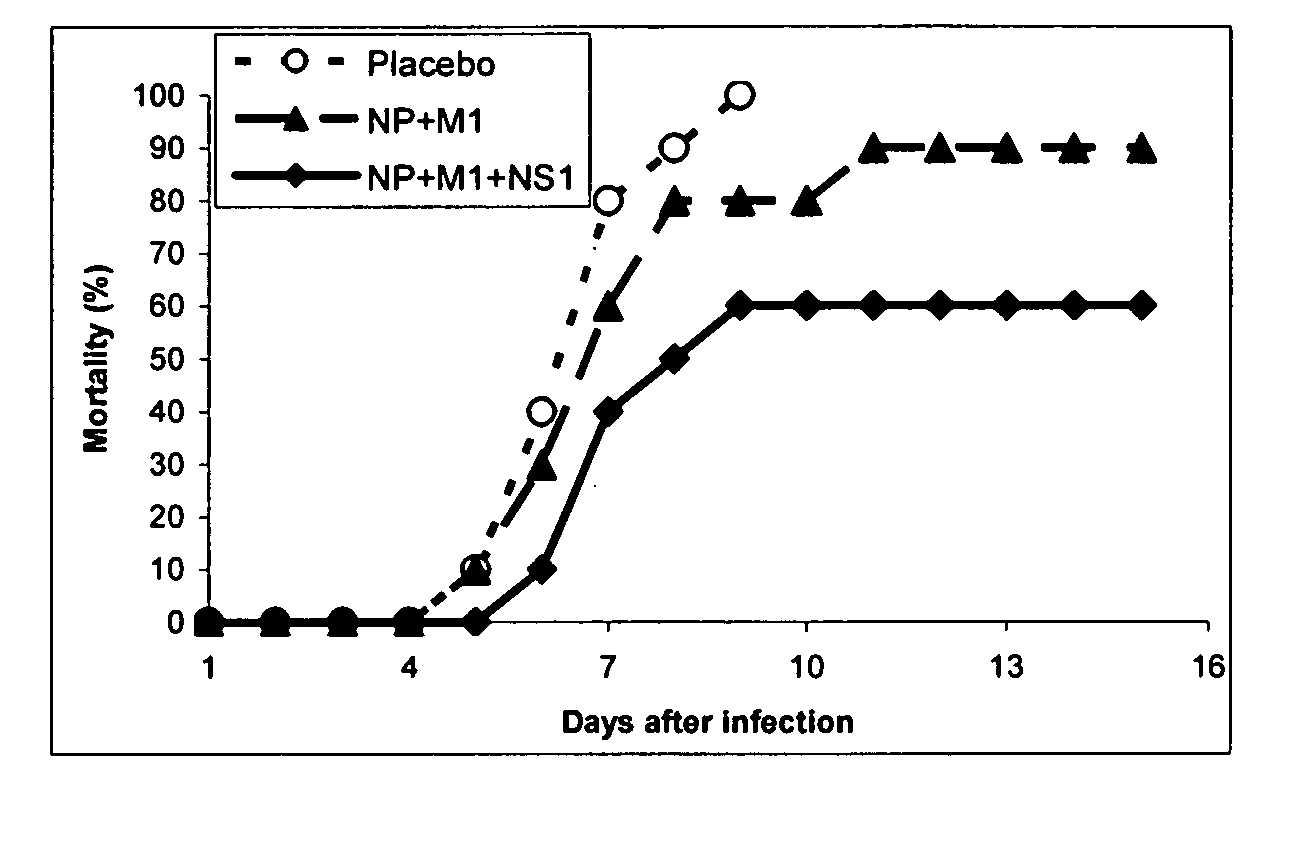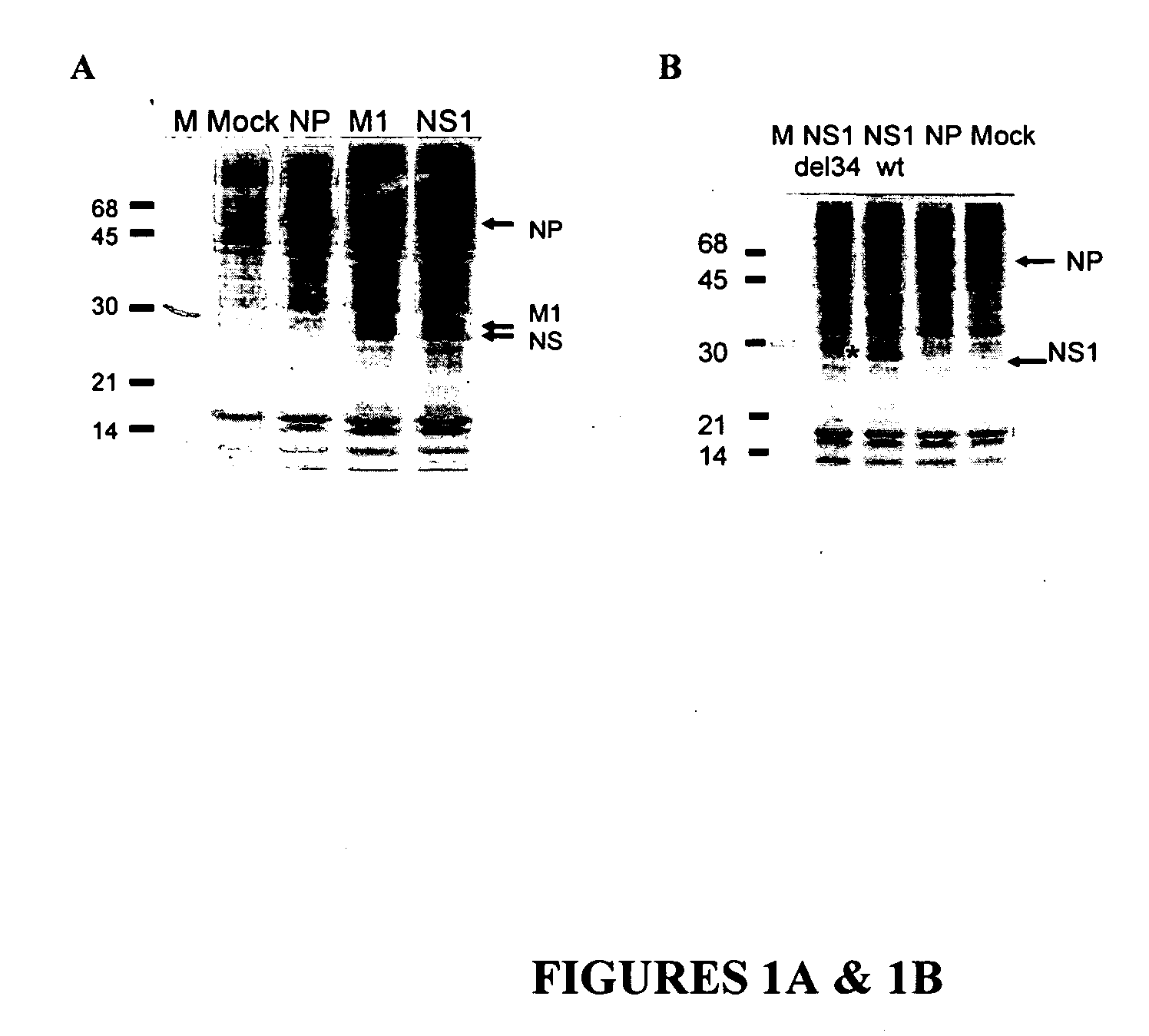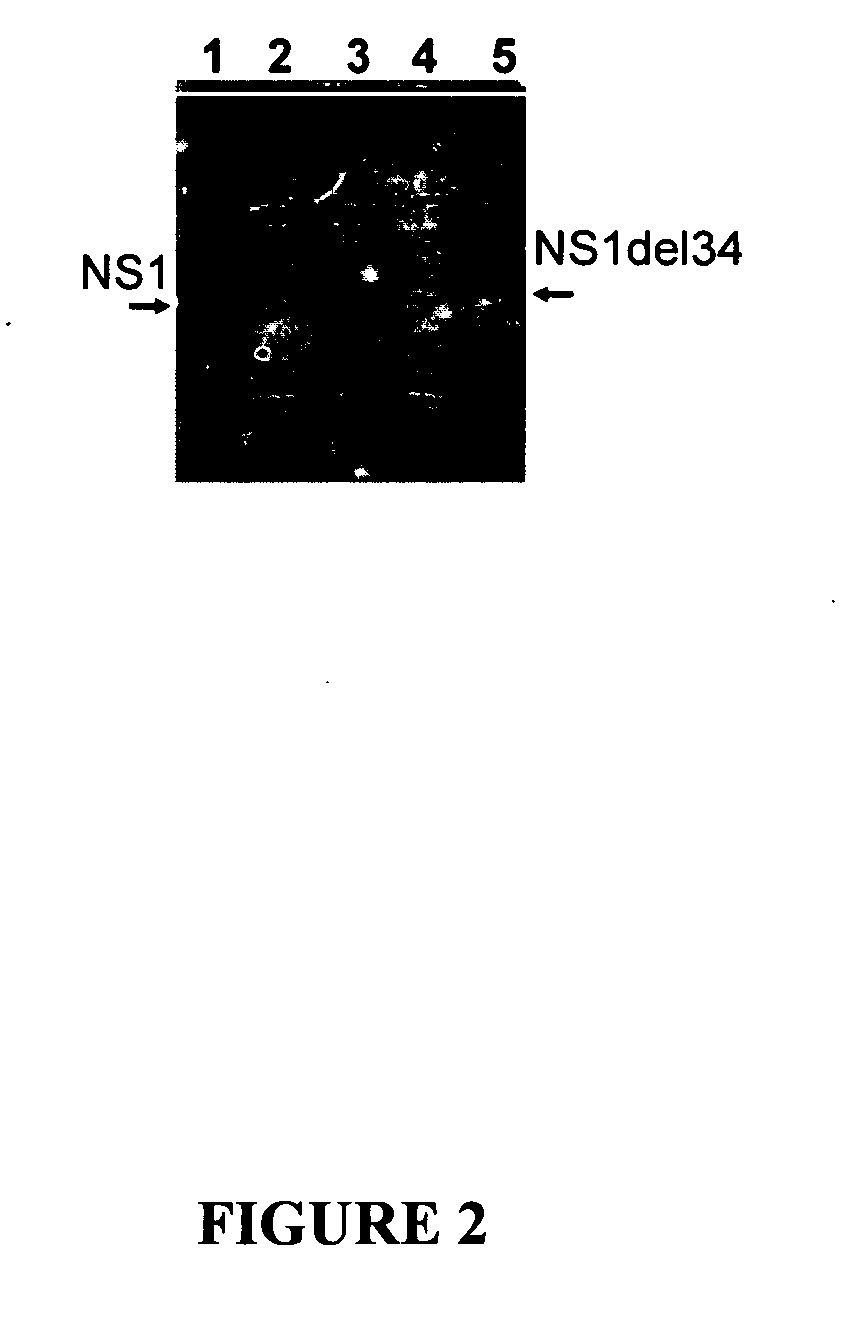Influenza vaccine compositions and methods of use thereof
a technology of influenza vaccine and composition, which is applied in the field of influenza vaccine composition, can solve the problems of life-threatening complications, health care costs and lost productivity, and impose a considerable economic burden, and achieves the effect of effective and long-term t cell response and more efficient proteolytic cleavag
- Summary
- Abstract
- Description
- Claims
- Application Information
AI Technical Summary
Benefits of technology
Problems solved by technology
Method used
Image
Examples
example 1
DNA Vaccination of Mice With a Vaccine Containing Influenza NP, M1 and NS1 Expressing Plasmids.
Generation of NP, M1 and NS1 Expression Plasmids.
[0093] Expression plasmids carrying conserved influenza NP, M1 or NS1 genes were constructed by insertion of the PCR-amplified full viral gene sequences into the EcoRI site of pCAGGS vector (See, Niwa et al, (1991) Gene. 108:193-199.). The following viral sequences were used: NP from influenza strain A / WSN / 33-H1N1, M1 from influenza strain A / WSN / 33-H1N1, and NS1 from influenza strain A / PR / 8 / 34-H1N1. The highly efficient pCAGGS vector possesses a composite promoter derived from CMV and the chicken actin gene, which was used for viral gene expression. The resulting constructs efficiently expressed NP, M1 and NS1 proteins in the human mammalian cell line 293T (FIG. 1A). Semi-confluent cultures of 293T cells were transfected with plasmid DNAs using Lipofectamine 2000 (Invitrogen) according to the manufacturer's directions. Either 1 or 2.7 μg ...
example 2
Protective Effect Against H3N2 Influenza Virus in Experimentally Infected Mice
[0106] Mice vaccinated twice with both combinations of NP, M1 and NS1 (differing only in the type of NS1 used) and those in the control groups were subjected to the experimental infection with influenza virus. All animals were challenged intranasally with the mouse-adapted variant of strain A / Aichi / 2 / 68 (H3N2) at 10 or 100 LD50. Body weight, lung pathology and overall mortality were assessed. Body weight gain of mice was monitored throughout the period of observation to evaluate (i) toxicity of injected DNA samples and (ii) severity of the infection process (FIG. 5). Normal body gain was observed up to after 2nd vaccination and preceding the virus infection. This data indicates the absence of any visible toxicity of vaccine DNA injections.
[0107] Immediately upon viral infection, a marked body weight reduction was observed in all infected groups. This reduction was fatal in placebo-immunized animals at bo...
example 3
Protective Effect Against H5N2 Influenza Virus in Experimentally Infected Mice
[0110] A separate experiment was performed in the mouse model using a similar scheme of immunization (as described in example 2) followed by challenge with a different influenza virus strain, A / Mallard / Pennsylvania / 10218 / 84 (H5N2, of avian origin, but mouse-adapted). Six groups of Balb / c mice were inoculated either with a pNP / pM1 / pNS1 combination or with each of plasmids separately. Vaccination was performed twice and was followed by the viral challenge with 5 LD50. The data of animal survival is presented in FIG. 7 and Table E2. The only group of animals that showed a noticeable and statistically significant protection against 5 LD50 H5N2 challenge was immunized by the pNP / pM1 / pNS1 combination. This observation was further supported with the data on viral titer from the infected animals (Table 3). While pNP-immunized animals also showed a decrease in viral titer, it was most profoundly manifested in the ...
PUM
| Property | Measurement | Unit |
|---|---|---|
| diameter | aaaaa | aaaaa |
| weight | aaaaa | aaaaa |
| volume | aaaaa | aaaaa |
Abstract
Description
Claims
Application Information
 Login to View More
Login to View More - R&D
- Intellectual Property
- Life Sciences
- Materials
- Tech Scout
- Unparalleled Data Quality
- Higher Quality Content
- 60% Fewer Hallucinations
Browse by: Latest US Patents, China's latest patents, Technical Efficacy Thesaurus, Application Domain, Technology Topic, Popular Technical Reports.
© 2025 PatSnap. All rights reserved.Legal|Privacy policy|Modern Slavery Act Transparency Statement|Sitemap|About US| Contact US: help@patsnap.com



